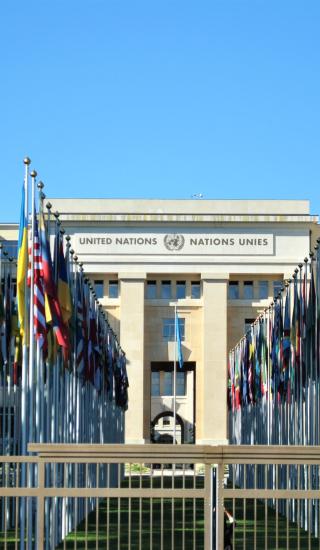ARTICLE
REPORT
REPORT
REPORT
REPORT
REPORT
REPORT
REPORT
After the staggering human toll of World War II and the horrors of the Holocaust, world leaders began a remarkable project in 1948 to identify and protect universal human rights. Eleanor Roosevelt served as chairwoman of the committee that drafted the Universal Declaration of Human Rights (UDHR). She forged a consensus among representatives from diverse countries, political systems, cultures, languages, and religions.
Over the ensuing decades, however, this remarkable consensus has been challenged by a powerful new movement of sovereign and non-sovereign entities, including lawyers, academics, nongovernmental organizations (NGOs), activists, and U.N. officials who seek to “improve” on what was accomplished in 1948. To meet perceived new challenges, many of which are attributed to globalization, this movement asserts new rights and new interpretations of legally recognized rights. However, efforts to promote the “evolution” of rights threaten to undermine the great and noble project in fundamental ways.
Other Resources
The Natural Law Foundations of International Human Rights and Religious Freedom
Report of the Commission on Unalienable Rights
Combatting Hate with Freedom, Not Censorship: The Example of Anti-Semitism
Can Human Rights Be Rescued From Human Rights Activists’ Overreach?
Pompeo’s Panel Offers Needed Clarity, Guidance on Human Rights
The U.S. Must Protect Human Rights of All Individuals Based on Human Dignity—Not on Membership in Identity Groups
The Origins of Hate Speech
Events
Getting Human Rights Back on Track
The Report of the Commission on Unalienable Rights: Why the Controversy?
The Debasement of Human Rights: How Politics Sabotage the Ideal of Freedom
HEARING: International Human Rights and the Closing Civic Space

The Honorable Mike Pompeo
Dec 2, 2020 6 min read